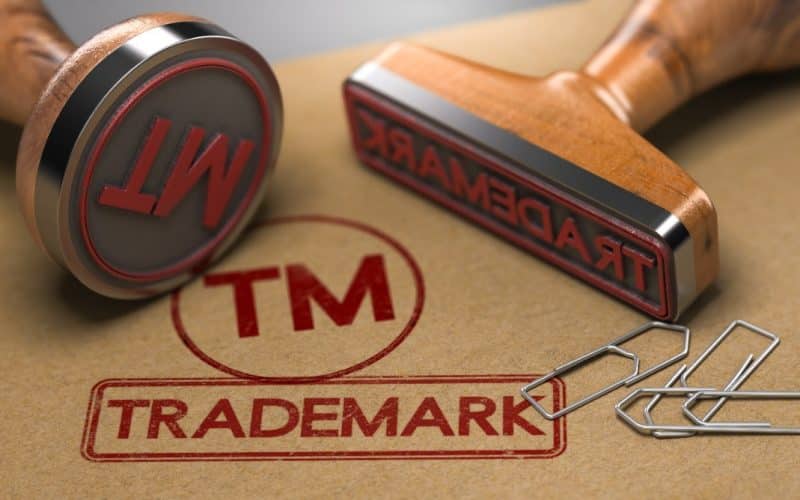Intellectual property refers to a work resulting from creativity, such as a design or a novel, to which one has rights. The primary purpose of intellectual property is to protect the rights of people who create products with their minds. There are different types of intellectual property rights, including trademarks and copyrights.
If you’re planning to apply for a legal right over your creation, you must first understand the difference between a trademark and a copyright. Whether you’re considering having copyright ownership over your unique creations or looking to trademark your brand, you want to choose the most suitable one for you.
This article discusses what trademarks and copyrights are and their differences. Moreover, it provides a guide to choosing the best one for you. Read on.
What Is a Trademark?
A trademark identifies and distinguishes the source of goods or services. Be it a term, phrase, symbol, or design; a trademark constitutes identity. Similar to it, a service mark indicates and differentiates the supplier of services as opposed to goods.
Companies and people utilizing trademarks are protected from being confused with businesses with similar-sounding names, logos, or slogans. If everyone were permitted to use the same name for their products, the goal of trademarks would be to prevent confusion in the marketplace.
If you want to file a trademark registration, be sure to conduct a trademark search beforehand. This is to ensure the availability of the registration of your mark before using it. Additionally, this prevents you from committing an unintended infringement of another’s trademark. If you want assistance in conducting a trademark search and trademark registration, there are numerous companies offering trademark registration services, such as Trademark Engine.
What Is a Copyright?
A copyright is a set of rights granted to the creator of an original work. It allows the creator to control how others use their work. It’s automatically granted to the work owner, without needing registration, when that work is created. The law recognizes that for copyright to be granted, the work must be original and fixed in a tangible medium.
While it’s automatically granted, you can opt to file for copyright registration for several benefits. Copyright registration officially registers your work with the United States Copyright Office (USCO), which serves as a public record of your claim to ownership. It’s important because it helps establish legal ownership if there’s a dispute over who owns what. It also gives you specific rights, such as the right to sue for infringement and compensation if someone uses your work without your permission.
Copyright protection applies to a wide range of creative works, including literary and artistic works such as novels, movies, songs, photographs, and software programs. It also covers non-fiction works, such as research papers or engineering designs, and compilations of data or other material original in some way.
Choosing The Right One For Your Business
Choosing the right intellectual property for your business is one of the most important decisions you can make. When choosing which type of intellectual property to apply for, consider what type of company you have. This will help you know what to choose. Furthermore, below are some of the factors to consider when choosing which one is best for you between a trademark and copyright.
#1. Protection
A trademark protects the words, names, symbols, sounds, or designs that distinguish your company’s goods or services from those of other companies. Trademarks are also crucial for business owners because they help them protect brand recognition for their products or services. This attracts new customers who want what their competitors can offer them.
Copyright, on the other hand, protects original creations in any medium, written works such as books, movies, and plays. Music, artistic works like drawings and paintings, and computer software code fall under this protection, too. Copyright is vital as it protects the interests of a creator and their creations while allowing others to access them legally.
#2. Cost
Copyright is a right you automatically have when you create original work. In other words, it’s just something that happens when you create something unique. It doesn’t cost anything to own a copyright. However, if you decide to file a copyright registration, depending on your claim, you have to pay some fees. For instance, according to the USCO, the paper filing registration of a claim in an original work of authorship may cost USD$125.
Trademarks, on the other hand, must be registered with the US Patent and Trademark Office to receive protection as a trademark. This means that you must apply for the trademark through them (and pay fees) before using or registering it in any way at all. It could cost as much as USD$250 per filing.
Once granted, though, trademarks get similar protection as copyrights. They protect against unauthorized use of logos or brand names by people who don’t own the rights to those marks.
#3. Purpose
Copyright is used to protect original works of authorship, such as books, music, films, and artwork. It does not protect the names or titles of those works. Copyright law protects only the content of the expression, not the ideas or facts themselves. For example, if you write about how to fix your car engine, you cannot prevent others from writing about fixing cars because their information does not infringe upon your rights.
On the flip side, trademarks identify products and services in commerce. A trademark may be a word, phrase, image, symbol, or anything else that identifies your business’s goods or services in exchange. The purpose of a trademark is to protect businesses and individuals from being confused with other companies’ products or services. Additionally, a company uses a trademark in advertising and promotional materials to create an image for its brand.
#4. Duration
A copyright lasts for the life of the author plus 70 years. This means that once you publish a work, you have several years to make money off it before it enters the public domain. This is the standard duration for copyright.
On the other hand, the length of time a trademark lasts depends on the country and jurisdiction in which it was registered. The term of protection for trademarks registered in the United States is generally 10 years. However, it can be renewed indefinitely if you continue using your commerce mark.
#5. Paperwork
The paperwork process to register a copyright is lower than the one to register a trademark. Copyrights are automatic upon creation (when you do your work), and no registration is required. However, as discussed, there are advantages to registering your copyright with the USCO.
On the other hand, the trademark paperwork process is a long and arduous one. The first step is to determine whether you have a valid mark. The next step is to determine whether the mark is available for registration. If it is, you’ll need to apply for registration of your trademark.
#6. Ownership Right
Copyrights provide an ownership right to the author or creator of a work. Copyright provides ownership rights by ensuring that the owner of a work has the sole right to copy, distribute and adapt it. Ownership rights include the ability to use or sell the work, and copy, distribute, or alter it. The owner has the right to control who can use or reproduce their work.
Trademarks, in contrast, may be registered by anyone who wants to use them in specific ways for commercial purposes. Trademarks are the property of a business. However, there’s no requirement that you own your business to register a trademark. This means that if you have an idea for a product or service, or you’ve established yourself as a creator or brand of products or services, you can file to register a trademark.
Conclusion
Understanding the differences between trademarks and copyrights is essential in choosing the most suitable one for you. Just remember to consider the factors discussed above when selecting one. Once you have decided, you might also want to consider hiring professionals to assist you in filing your registration.
Related Articles
- HOW TO TRADEMARK A LOGO: Best US practices, Requirements & What you should know
- How To Trademark a Name: Importance, Tips & All You Need
- TRADEMARK LAWYER: How to Hire a Licensed Trademark Attorney
- The Issue of Plagiarism and Copyright Infringement in Business
- GENERAL LIABILITY INSURANCE: Coverage & Quotes For Your Business






